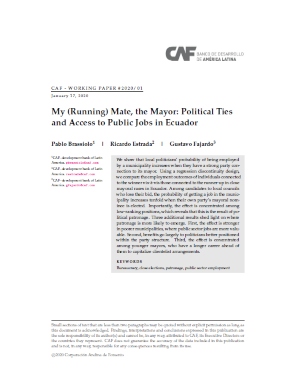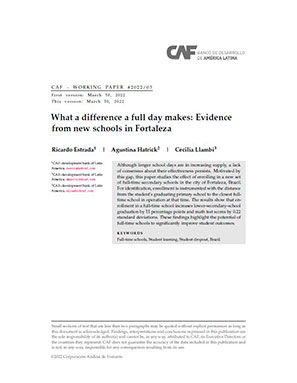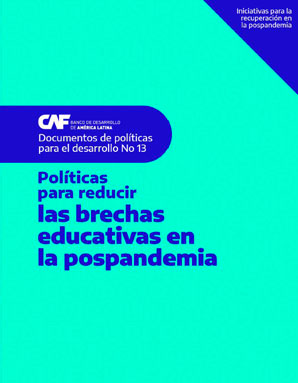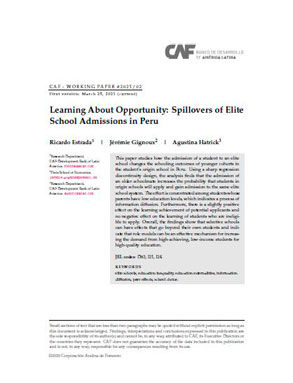Search
Now showing items 1-7 of 7
Poor Little Children: The Socioeconomic Gap in Parental Responses to School Disadvantage
(CAF, 2017-11-08)
In this paper, we study how parents react to a widely-used school policy that puts some children at a learning disadvantage. Specifically, we first document that, in line with findings in other countries, younger children ...
My (Running) Mate, the Mayor: Political Ties and Access to Public Jobs in Ecuador
(CAF, 2020-01-17)
We show that local politicians’ probability of being employed by a municipality increases when they have a strong party connection to its mayor. Using a regression discontinuity design, we compare the employment outcomes ...
Going subnational: wage differentials across levels of government in Brazil, Mexico and Uruguay
(CAF, 2021-12-22)
Workers at subnational governments play a prominent role in the delivery of public services in most countries. Yet, information about their remuneration is scarce. Using data for Brazil, Mexico and Uruguay, we document ...
What a difference a full day makes: Evidence from new schools in Fortaleza
(CAF, 2022-03-18)
Although longer school days are in increasing supply, a lack of consensus about their effectiveness persists. Motivated by this gap, this paper studies the effect of enrolling in a new set of full-time secondary schools ...
Políticas para reducir las brechas educativas en la pospandemia
(CAF, 2021-08-17)
El cierre sin precedentes de las escuelas en casi todos los países y el efecto de la pandemia del COVID-19 en los ingresos y el bienestar de las familias han afectado negativamente los aprendizajes y la trayectoria educativa ...
Learning About Opportunity: Spillovers of Elite School Admissions in Peru
(CAF, 2021-03-29)
This paper studies how the admission of a student to an elite school changes the schooling outcomes of younger cohorts in the student’s origin school in Peru. Using a sharp regression discontinuity design, the analysis ...
Bureaucratic turnover across levels of government
(CAF, 2021-11-19)
The incidence of patronage can vary widely across levels of gov ernment within a country. We show this in the context of Brazil, which has been the focus of most recent research on patronage. In particular, we find that ...






